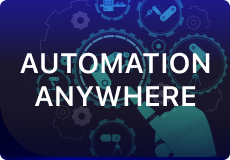RPA

Companies that Trust BTREE Learners
RPA Courses

Career Transition
Other Courses
Testimonials
FAQ 's on RPA
What is Robotic Process Automation (RPA)?
Robotic Process Automation (RPA) is a technology that uses software robots, or “bots,” to automate repetitive, rule-based tasks in business processes. These bots can mimic human actions, such as entering data, processing transactions, and responding to customer inquiries, across multiple systems and applications.
RPA helps businesses increase efficiency, reduce errors, and lower costs by handling time-consuming tasks with greater accuracy. This allows employees to focus on more strategic work, improving overall productivity. RPA is widely used in industries like finance, healthcare, and manufacturing where automation can streamline workflows and boost operational performance.
By implementing RPA, companies can enhance their digital transformation efforts and stay competitive in today’s fast-paced business environment.
How Does RPA Differ from Traditional Automation?
Robotic Process Automation (RPA) differs from traditional automation in several key ways. Traditional automation typically involves integrating systems using complex coding or APIs to automate specific processes within a controlled environment. This method requires significant development effort and customization to make systems work together.
On the other hand, RPA uses software bots that mimic human actions and interact with digital systems just like a person would, without the need for deep integration. RPA bots can work across different applications and platforms, automating tasks such as data entry, form filling, and process execution without modifying existing infrastructure. This makes RPA more flexible, quicker to deploy, and scalable across various business functions.
In summary, while traditional automation focuses on system integration and is often limited in scope, RPA offers a more versatile solution by enabling businesses to automate repetitive tasks across multiple systems with minimal technical changes.















